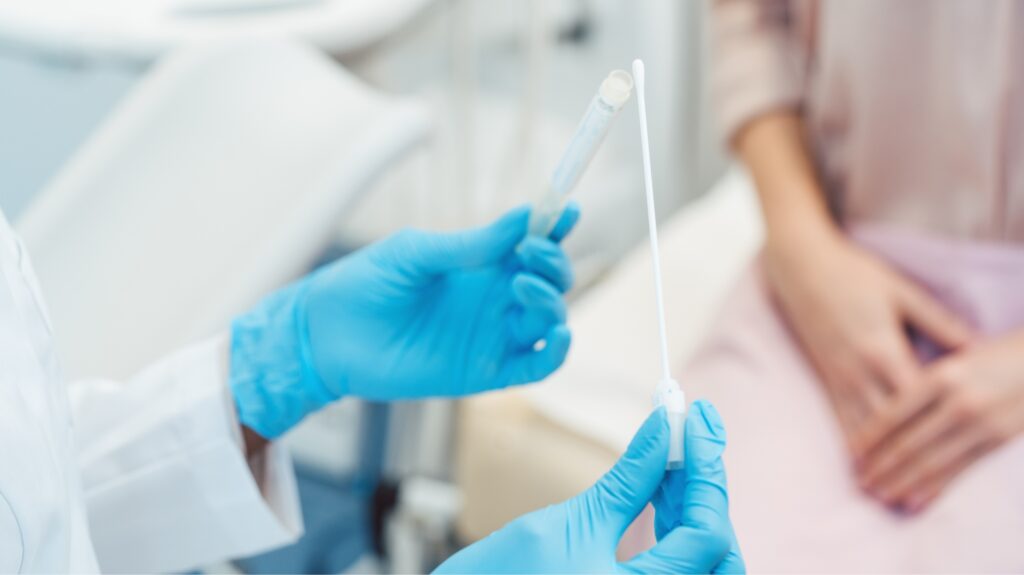Protecting Your Sexual Health: Where to Get Checked for STD in Singapore

Now, more than even, is the time that the stigma on STD screening gets shattered. Getting checked for STD is not just a routine medical procedure; it is a valuable step towards taking control of your sexual health.
Think of it as a journey of self-care and responsibility, where you prioritize your well-being and the well-being of your partners. By getting tested, you empower yourself with knowledge, allowing you to make informed decisions and engage in healthy conversations about sexual health. Many individuals may not even realize they have an STD because some infections may not cause noticeable symptoms and that is a greater reason why an STD screening matters.
Read this article to learn more about the common symptoms to watch out for, STIs, how an STD check is done, and the types of STD screening tests available in Singapore.
Benefits of early detection
Early detection of STDs through regular screening can have numerous benefits. First, it allows for timely treatment, which can prevent the progression of the infection and reduce the risk of complications. Many STDs, if left untreated, can lead to serious health issues such as infertility, chronic pain, and even cancer. Secondly, by detecting infections early, you can take immediate steps to prevent transmitting the disease to others. Effective treatment can also help reduce the risk of spreading STDs to sexual partners. Lastly, regular STD screening provides peace of mind and allows you to engage in sexual activity with confidence, knowing that you are taking proactive steps to protect your own health and the health of others.
Common STD symptoms
While some STDs may be asymptomatic, many infections do cause noticeable symptoms.
- Unusual discharge: If you observe any abnormal discharge from your genitals, such as pus, blood, or a foul odor, it may be a sign of an STD.
- Pain or discomfort during urination: Painful urination can indicate the presence of an STD, particularly if it persists or worsens over time.
- Genital sores or ulcers: Open sores, blisters, or ulcers on the genitals can be a symptom of various STDs, including herpes and syphilis.
- Genital itching or irritation: Persistent itching or irritation in the genital area can be a sign of an STD, such as pubic lice or a yeast infection.
- Pain during sexual intercourse: If you experience pain or discomfort during sex, it could be a symptom of an STD, such as chlamydia or gonorrhea.
These symptoms can vary depending on the specific STD. If you experience any of these symptoms or suspect you may have been exposed to an STD, it is advisable to seek immediate medical advice and get tested.
Testing for specific STIs
Different STDs require different testing methods. Here are some key details about testing for specific STIs:
Chlamydia and Gonorrhea
Testing for chlamydia and gonorrhea often involves a urine sample or a swab of the affected area. The sample is then sent to a laboratory for analysis. In some cases, a healthcare provider may perform a physical examination to check for signs of infection.
HIV
Testing for HIV requires a blood test, which can detect the presence of antibodies or antigens produced in response to the virus. Rapid HIV tests are also available, and these can produce results within minutes.
Syphilis
Syphilis can be diagnosed through a blood test, where the sample is checked for the presence of antibodies to the bacteria that causes syphilis.
Herpes
Herpes can be diagnosed through a physical examination of the affected area and a swab of any visible sores or blisters. Blood tests may also be conducted to detect herpes antibodies.
HPV
HPV testing can involve a pap smear or an HPV DNA test. A Pap smear is a procedure that collects cells from the cervix for examination, while an HPV DNA test checks for the presence of high-risk HPV strains.
How is STD screening done?
STD screening typically involves a few simple steps. The first thing to do is to discuss your sexual history and any symptoms you may be experiencing with a healthcare provider. This information will help determine the appropriate tests to be conducted. Next, depending on the specific STD being tested for, a sample of blood, urine, or tissue may be collected. The sample is then sent to a laboratory for analysis. Once the results are available, your healthcare provider will discuss them with you and provide any necessary treatment or guidance.
When to see a doctor for STD testing in Singapore
If you are sexually active, it is advisable to see a doctor for STD testing on a regular basis, even if you are not experiencing any symptoms. Additionally, it is important to seek medical attention if you:
- Have had unprotected sex with a new partner.
- Have had multiple sexual partners.
- Have been exposed to someone with a known STD.
- Experience symptoms such as unusual discharge, pain during urination, or genital sores.
Do I still need to get checked for STD even if I do not have the symptoms?
The answer to this very popular question is yes, even if you do not have any symptoms, it is important to get tested for STDs. As mentioned earlier, many STDs can be asymptomatic, meaning you may have an infection without experiencing any noticeable signs. Regular STD screening helps detect these hidden infections. Furthermore, getting tested regularly is also a responsible and considerate action towards your sexual partners.
Where to get STD checks in Singapore
In Singapore, there are numerous options available for getting STD checks. Here are some places you can consider:
- Public health clinics: The Singapore National Skin Centre and various Health Promotion Board clinics provide comprehensive sexual health services, including STD testing.
- Private Clinics: There are many private clinics throughout Singapore that offer discreet and confidential STD testing services. These clinics often have shorter waiting times and may provide additional amenities such as online appointment booking. If you are looking for a reputable facility, the Health Advisory Clinic is one of the best choices in Singapore.
- Specialized STD Clinics: There are dedicated STD clinics in Singapore that focus specifically on sexual health and provide a wide range of testing and treatment options.
STD screening services available in Singapore
In Singapore, various STD screening services are available to cater to different needs and preferences. Some common services include:
- Basic STD tests: These tests typically cover common STDs such as chlamydia, gonorrhea, syphilis, and HIV.
- Comprehensive STD panels: Comprehensive panels offer a more extensive range of tests, including additional STDs such as herpes, hepatitis B, hepatitis C, and HPV.
- Rapid testing: Rapid testing utilizes advanced technology to provide quick results, often within minutes. This option is particularly useful for those seeking immediate peace of mind or requiring urgent results.
—
The Health Advisory Clinic
One Raffles Place, #04-49
1 Raffles Place, Singapore
048616
https://healthclinicgroup.com/
Tel: (+65) 6226 6442
Whatsapp: (+65) 9886 6442
Recommended For You
Can You Get A Medical Marijuana Card For Anxiety And Depression?
Most Inside
Most Inside offers high-quality recommendations and valuable updates to enhance all aspects of your life, providing premium guidance and enriching experiences.




